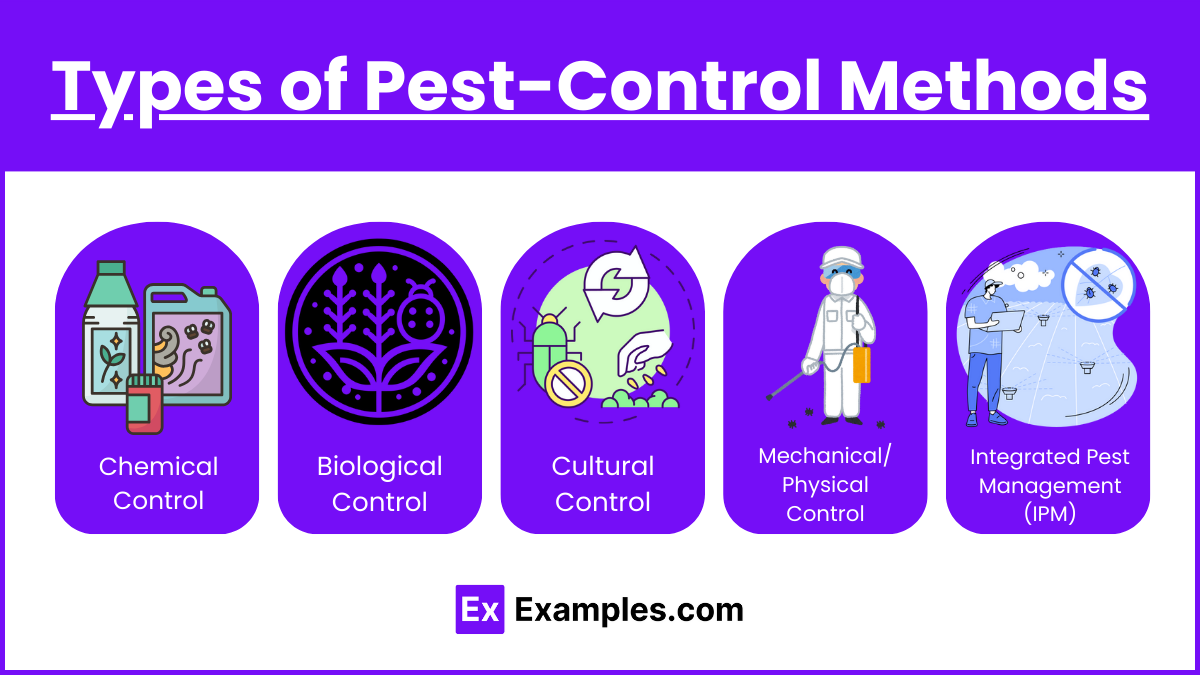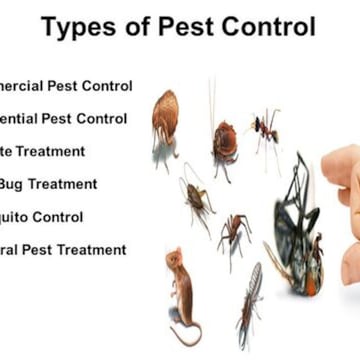All About Pest Control
All About Pest Control
Blog Article
Pest Control - The Facts
Table of ContentsPest Control Can Be Fun For AnyoneThe 9-Second Trick For Pest Control10 Simple Techniques For Pest ControlExamine This Report about Pest ControlFascination About Pest Control
Limitations of Chemical Management Be able to analyze insect problems, identify if management is necessary, and make appropriate recommendations using IPM strategies. Be acquainted with various methods of pest management - their advantages and constraints.This chapter talks about (IPM), a technique that uses expertise concerning parasites and their, techniques, nonchemical methods, and chemicals to manage bug troubles. Additional information regarding IPM for details plants is included in chapters that concentrate on those plants. Nonchemical insect control actions are stressed in chapter 17, "Organic Horticulture." Managing birds and creatures is covered in chapter 20, "Wildlife." Taking care of in the backyard and garden is covered in chapter 6, "Weeds." Insects in a garden or landscape may consist of insects and mites, weeds,, animals, and birds.
Pests and weeds, nevertheless, play a function in the. After planting a garden or establishing a grass, the all-natural procedure of plant succession starts to reestablish and nonnative plants.
What we call "parasites" become part of an all-natural system at the office. A community has no pests. Only human beings consider specific types insects when they occur where they are not wanted. We will certainly be more effective in managing unwanted types when we realize that these organisms adhere to foreseeable patterns that we can utilize to our benefit.
An Unbiased View of Pest Control
Insects susceptible to a chemical were promptly killed, leaving resistant ones to breed and increase. It ended up being clear that pesticides alone would not address all bug issues.
An IPM plan allows some level of parasites in the atmosphere. Parasites are a lot less most likely to make it through a program that uses several approaches of minimizing their populaces. Integrated parasite monitoring was first recommended by entomologists due to the fact that bugs were the initial team of insects to show difficult to take care of with chemicals alone.
A limit is the point at which activity must be taken. IPM has actually extended beyond bugs to monitoring of all pest populations: weeds, condition organisms, and animals.
The 30-Second Trick For Pest Control
Administration instead of obliteration of bugs is the goal. An IPM plan starts with a mindful evaluation of each parasite problem. Only after that can one determine regarding the proper techniques necessary to subdue pest tasks. The life cycle of the pest, feasible damages, all-natural enemies, and impacts of weather condition, to name a few factors, are considered prior to a control strategy is applied - Pest Control.
Clover growing in a lawn might be deemed an undesirable weed, however as a vegetable it is manufacturing nitrogen for the dirt and the flowers are offering nectar to honey bees and other. Resistance for some weeds might belong to an IPM plan. might be consuming the leaves of a plant, yet when they are identified as the larvae of Eastern tiger swallowtail butterflies, their damage may be endured so we can appreciate the gorgeous butterfly.

The second most important tool in parasite administration is early treatment. Reacting to issues quickly, prior to they have time to multiply, needs a less significant treatment.
What Does Pest Control Do?
Several secure, useful, nonchemical techniques of plant security and bug monitoring may decrease or remove the need to spray. Other approaches are most advantageous when utilized with pesticides. To apply management practices correctly and to minimize losses, garden enthusiasts need to recognize the kinds of pests that attack plants and understand pest biology.

Conducting a soil examination and using only the recommended quantity of plant food and lime makes best use of the benefit to the plant while lessening troubles related to extreme usage of plant food - Pest Control. Covering the soil with a number of inches of compost safeguards the plant in numerous ways: lowering dirt water loss to evaporation, decreasing weed competitors, providing nutrients, and producing a suitable environment for earthworms and bacteria why not check here that maintain the dirt loosened for roots and break down organic product to launch nutrients
If mulch touches the trunk, it can produce a means for voles, microorganisms, and fungi to assault the plant. Do not use manure or compost that has not extensively decomposed as a top dressing because it can motivate unfavorable bugs. Research study suggests that farming is detrimental to dirt framework.
Not known Facts About Pest Control
If tilling is regarded needed, think about doing it in the fall when the life process of lots of insects brings them near the surface. At the surface area, bugs become revealed to the climate along with birds and various other all-natural adversaries. Fall tilling can also ruin bugs in crop residues. Use disease-free address and insect-free qualified seeds and plants if readily available.
Report this page